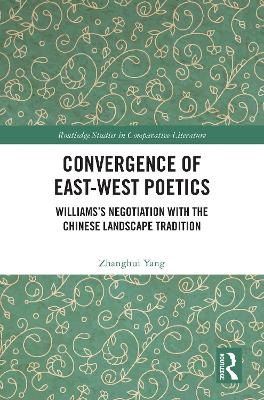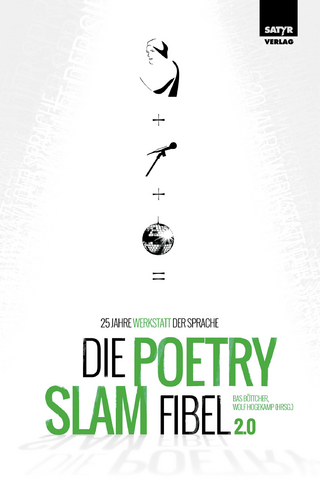
Convergence of East-West Poetics
Routledge (Verlag)
978-1-032-57840-8 (ISBN)
The present book examines William Carlos Williams’s negotiation with cultural modes and systems of the Chinese landscape tradition in his landscape writing. Focusing on Walliams’s landscape modes of landscape with(out) infused emotions, the book builds a linkage between their interactions with Chinese landscape aesthetics and shows how these conversations helped shape Williams’s cross-cultural landscape poetics. The exploration of Williams’s experiment with the Chinese serene interplay of self and landscape, the interfusion of scene and emotion, an idea of seeing from the perspective of Wang Guowei’s theory of jingjie, and the poetic space of frustration and completion in the context of space and human geography, expand the understanding of a cross-cultural landscape tradition developed by Williams through bringing into focus the convergence of East-West poetics.
Zhanghui Yang is Associate Professor of American Literature at Yunnan Normal University in China. He earned his doctorate from the University of Macau in 2021. His main research areas are China and modernism, and literature and geography, with a special focus on the interaction of Chinese classical landscape poetry and landscape writing in American modernist poetry.
Acknowledgments
Introduction
1. Williams’s Encounter with China and the Chinese Landscape Tradition
1.1 “the material I knew”: Williams’s Knowledge of China and Chinese Landscape tradition
1.2 Williams’s Early Engagement with Chinese Landscape Aesthetics: 1915-1923
1.3 Chinese Landscape Aesthetics in Williams’s Late Works
2. Chinese Landscape Tradition and Its Journey to the American Modernism
2.1 Chinese shanshui 山水 Tradition: An Introduction
2.2 Fenollosa: the Forerunner of Introducing Chinese Landscape Aesthetics
2.3 Pound: the Inheritor Carrying Forward the Legacy of Fenollosa
2.4 Convergence of Pound’s Imagist Aesthetics and Chinese Landscape Tradition
3. Inheritance and Innovation: Self and Landscape in Williams Poetry
3.1 “with the material I had, I was lyrical”: Landscape Aesthetics of the West and Williams’s Inheritance
3.2 The Lyrical Self in Williams’s Poetry and Prose
3.3 Self and Landscape in Chinese Landscape Discourse
3.4 Landscape with Self in Williams’s Early Poetry
4. The Chinese Interfusion of Emotion and Scene in Williams’s Landscape Writing
4.1 Williams’s Modernist Aesthetic Stance in His Poetry and Prose
4.2 The Interfusion of Emotion and Scene in Chinese Landscape Discourse
4.3 The Interfusion of Self and Landscape in Williams’s Poetry
5. Landscape and Seeing in Williams’s Poetry: A Chinese Perspective
5.1 “no ideas but in things” and the Idea of Seeing
5.2 Williams’s Blending of the Chinese Idea of Seeing into His Own Poetics
5.3 Landscape and Seeing in Chinese Critical Discourse
5.4 Williams’s Experiment with the Idea of Seeing in Landscape Writing
6. Landscape and the Poetic Space in Williams’s Poetry
6.1 Landscape, Seeing, and Space: a Critical Review
6.2 The Space of Frustration in Paterson
6.3 The Space of Completion in Williams’s Landscape Writing
Conclusion
Bibliography
Index
| Erscheinungsdatum | 10.07.2024 |
|---|---|
| Reihe/Serie | Routledge Studies in Comparative Literature |
| Zusatzinfo | 2 Halftones, black and white; 2 Illustrations, black and white |
| Verlagsort | London |
| Sprache | englisch |
| Maße | 152 x 229 mm |
| Gewicht | 580 g |
| Themenwelt | Literatur ► Lyrik / Dramatik ► Lyrik / Gedichte |
| Geisteswissenschaften ► Sprach- / Literaturwissenschaft ► Anglistik / Amerikanistik | |
| Geisteswissenschaften ► Sprach- / Literaturwissenschaft ► Literaturwissenschaft | |
| ISBN-10 | 1-032-57840-8 / 1032578408 |
| ISBN-13 | 978-1-032-57840-8 / 9781032578408 |
| Zustand | Neuware |
| Informationen gemäß Produktsicherheitsverordnung (GPSR) | |
| Haben Sie eine Frage zum Produkt? |
aus dem Bereich


